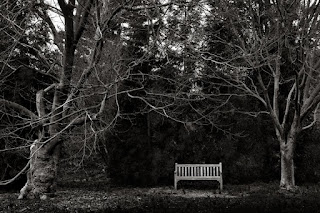 “...Consider an object ... what is an object?
“...Consider an object ... what is an object?Philosophers are always saying,
'Well, just take a chair for example.'
The moment they say that, you know they
do not know what they are talking about any more.
What is a chair?
Well, a chair is a certain thing over there ...
certain? How certain?
The atoms are evaporating from it
from time to time - not many atoms,
but a few - dirt falls on it and
gets dissolved in the paint;
so to define a chair precisely,
to say exactly which atoms are chair,
and which atoms are air, or which atoms are dirt,
or which atoms are paint that
belongs to the chair is impossible.
So the mass of a chair can be defined only approximately.
In the same way, to define the mass of a single object is impossible,
because there are not any single, left-alone objects in the world.”
— Richard Feynman, Physicist (1918 -1988)
(Lectures in Physics, Addison-Wesley)






